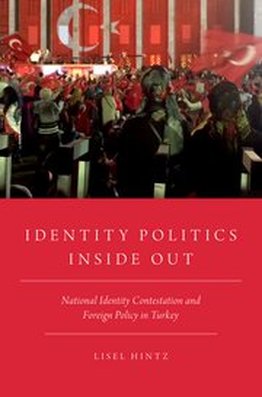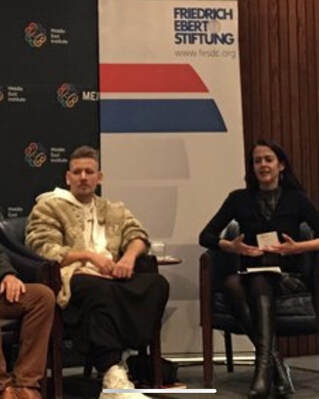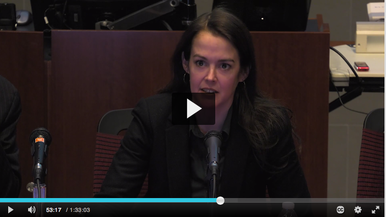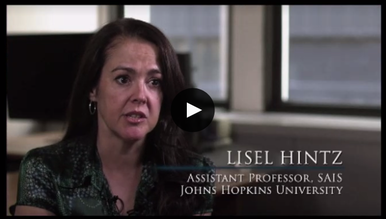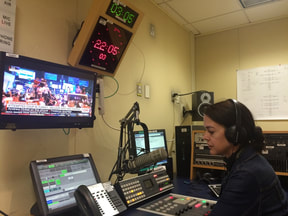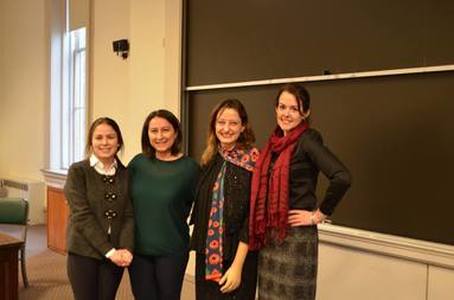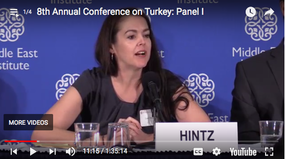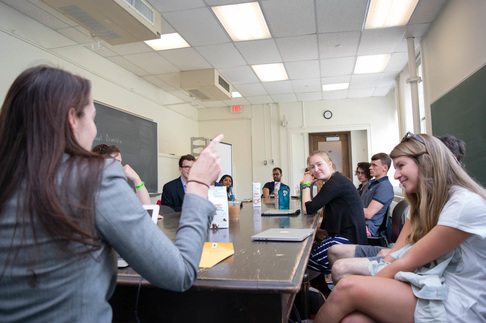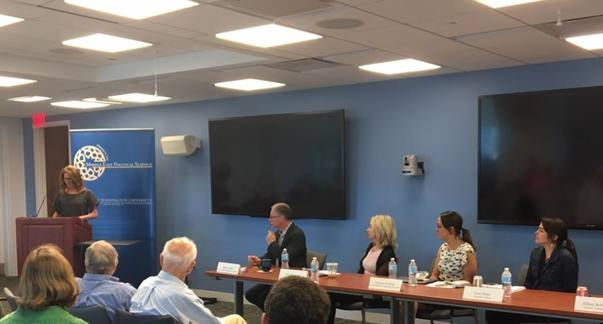
Lisel Hintz
Assistant Professor of International Relations
Johns Hopkins University
School of Advanced International Studies
My research examines how identity contestation shapes the politics of authoritarianism in both domestic and international arenas. Trained as political scientist, I draw methodological tools from anthropology and media studies to study identity dynamics with nuance and rigor. My regional focus on Turkey provides numerous cases of identity contestation for comparative analysis - e.g., Kurdish and Alevi issues, political Islam, anti-Westernism, neo-imperialism - that also spill over to impact foreign policy.
My 2022 co-authored article, for example, explains how the nationalist appeal of the ruling AKP's anti-US, counter-hegemonic messaging on its Russian S-400 missiles made giving up even a non-operational weapons system prohibitively costly. My 2018 book Identity Politics Inside Out: National Identity Contestation and Foreign Policy in Turkey (Oxford University Press) analyzes how the AKP used Turkey's EU accession process to weaken institutional obstacles to its Ottoman Islamist understanding of Turkish identity, opening space for a more activist foreign policy in former imperial territories while simultaneously consolidating its rule at home. My current book manuscript, under contract with Cambridge University Press, examines popular culture as an asymmetrical battleground on which authoritarian elites and oppositional actors struggle over the right to rule and, in turn, the power to define the appropriate national identity at home and abroad.
Applying an identity lens to processes of authoritarian consolidation at the local level, my 2024 co-authored article develops the term permissive prejudice to explain how ruling parties choose harsher, more visible repression strategies against stigmatized minorities, while using behind-the-scenes repression against ethnic majorities. My 2021 article explores pop culture as a vernacular platform of resistance against the AKP's vilification of "others" such as Kurds, Alevis, and the LGBTQ+ community as part of its authoritarian consolidation. I preview this work for a wide audience in a Washington Post article exploring how two rap videos galvanized Turkey's embattled opposition around issues ranging from increasing violence against women to environmental degradation to apathy. I also discuss these dynamics on a panel on art and authoritarianism in Turkey with one of the video's creators, rapper Sarp Palaur (aka Şanışer).
Following the devastating February 2023 earthquakes that killed over 50,000 people, I created a writing solidarity Zoom group to provide community for students and scholars from Turkey and Syria. Seeing the progress group members have made, I expanded the group to include SAIS PhD students and scholars working in/on/from MENA. Some participants have joined once, some over 100 times; some have finished PhD dissertations, some have published articles they've written in our sessions. I provide a blueprint of the group for others to use in the PS article; I very much hope the model will spread. We finished our 68th week on 6 July 2024.
Turkey is a highly culturally diverse and intellectually puzzling state, from aspects of civil-military relations to ethnic and gender politics to regional (in)security. Turkey is a NATO ally, EU candidate, and OIC member, and currently hosts the world's largest number of refugees. Understanding its domestic and foreign policies is thus vital for many reasons, and demands innovative forms of analysis that can be communicated to academic audiences, policy communities, and university classrooms. With this aim, I speak and write widely on Turkey’s relations in its complex neighborhood as well as with the US and the EU, the Syrian refugee crisis, Kurdish and Alevi issues, and the ruling AKP’s increasingly authoritarian grip on Turkish politics and society. My academic work includes publications in Democratization, Security Studies, PS: Political Science and Politics, European Journal of International Relations, British Journal of Middle Eastern Studies, Nationalities Papers, International Journal of Turkish Studies, Survival, and Project on Middle East Political Science Series. I also have contributed to Foreign Policy, the Washington Post's Monkey Cage, Boston Globe, War on the Rocks, BBC World News, and other media outlets as well as to government and think-tank panels and publications.
I am thrilled to work with Johns Hopkins SAIS students in teaching courses on foreign policy decision-making, comparative politics, protests and social movements, the politics of pop culture, and Turkey's cultural politics. Prior to joining SAIS, I was a postdoctoral fellow at Cornell University in AY 2015-16 and a Visiting Assistant Professor at Barnard College, Columbia University in AY 2016-17.
